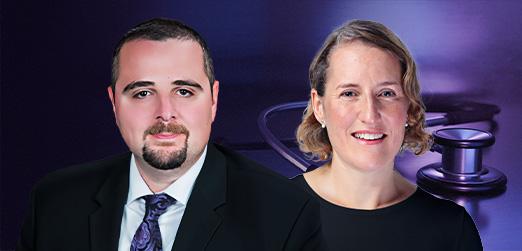- Home
- Examining a Complex Heart Failure Case
Examining a Complex Heart Failure Case
- Heart Failure
- Optimising treatment
- Prevention
- Primary care
Available Credit:
- 1.00
Course Published On:
Course Expiry Date:

Overview
Moderated by Prof Andrew JS Coats, Heart Research Institute, Sydney, AU, this broadcast explores how a complex heart failure patient would be treated by a multidisciplinary team.
Join Prof Andrew JS Coats, Dr Katherine Tuttle, Prof Silvio Inzucchi and Prof Richard Hobbs in this unique discussion, as they examine how the broader heart failure team can work together effectively and consider best practices for referral and initiation of foundational medical therapy.
Support Statement
This programme is supported by an unrestricted educational grant from AstraZeneca.
Disclosure
In compliance with EBAC guidelines, all speakers/chairpersons participating in this programme have disclosed or indicated potential conflicts of interest which might cause a bias in the presentations.
The Organising Committee/Course Director is responsible for ensuring that all potential conflicts of interest relevant to the event are declared to the audience prior to the CME activities. This programme is supported by an unrestricted educational grant from AstraZeneca.
Terms & Conditions
Radcliffe Education requires contributors to our CME programmes to disclose any relevant financial relationships that have occurred within the past 12 months that could create a conflict of interest. These will be identified in the faculty section if applicable.
The session, ‘Examining a Complex Heart Failure Case’ is accredited by the European Board for Accreditation of Continuing Education for Health Professionals (EBAC) for 1 hour of external CME credits.
Each participant should claim only those hours of credit that have actually been spent in the educational activity. EBAC works according to the quality standards of the European Accreditation Council for Continuing Medical Education (EACCME), which is an institution of the European Union of Medical Specialists (UEMS).
Through an agreement between the European Board for Accreditation of Continuing Education for Health Professionals and the American Medical Association, physicians may convert EBAC External CME credits to AMA PRA Category 1 Credits™. Information on the process to convert EBAC credit to AMA credit can be found on the AMA website.
Instruction to Participants
There is no fee for taking part in this online learning activity.
Activities are designed to be completed within 60 minutes and must be completed by the registered user. Physicians should only claim credits for time spent on the activity. To successfully earn credit, participants must complete the activity in full in the indicated time frame.
To complete the course and claim certification participants must:
- Read the course outline information supplied and complete pre-test questions if supplied prior to starting the activity. Users must read and study the activity in its entirety before completing the post-test questions.
- Your results will be automatically saved and if a pass score is achieved (where applicable), you may be eligible to claim credit for the activity and receive a certificate of completion.
Additional Information
Target Audience
- Cardiologists
- Heart Failure Specialists
- Primary Care Physicians
- Nurses
- Pharmacists
- HCPs
Learning Objectives
Upon completion of this activity, participants will be able to:
- Identify individuals likely to have HFpEF from initial presentation
- Refer suspected individuals for specialist assessment
- Initiate GDMT for HF as soon as patients are stable
- Initiate GDMT in HF regardless of EF and phenotype
- Initiate shared decision-making on complex HF patients with other members of the multidisciplinary team including cardiologists, GPs, nephrologists and diabetologists
Module |
Title |
Duration |
Speakers |
|---|---|---|---|
| 1 | Case Management Discussion | 11m 54s | Andrew JS Coats |
| 2 | Heart Failure Care | 35m 54s | Andrew JS Coats Katherine Tuttle Silvio Inzucchi Richard Hobbs |
| 3 | Q&A and Discussion | 24m 6s | Andrew JS Coats Katherine Tuttle Silvio Inzucchi Richard Hobbs |
Heart Failure Care
Duration: 35m 54s
Speakers: Andrew JS Coats Katherine Tuttle Silvio Inzucchi Richard Hobbs
Q&A and Discussion
Duration: 24m 6s
Speakers: Andrew JS Coats Katherine Tuttle Silvio Inzucchi Richard Hobbs
Chair
Speaker













